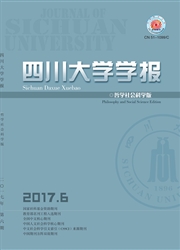

 中文摘要:
中文摘要:
改革开放以来,中国的对外贸易发展显著地促进了城镇化进程,贸易开放的时空差别也造成了城镇化发展水平的地区差异。贸易开放主要通过促进城镇非国有工业部门的扩张、扩大城乡收入差距、促进产业和人口集聚来推动城镇化进程。当前,城镇化已成为中国调整经济结构、转变经济发展方式的重心所在。为了更为充分地发挥贸易开放推进城镇化的作用,中国应在扩大内需的同时继续提高贸易开放的广度与深度、发挥"一带一路"战略重塑贸易空间和城镇空间格局的作用;坚持深化所有制改革,支持不同地区、不同规模城镇的外向型非公有制经济发展;积极有序地引导外向型、劳动密集型产业向中西部地区转移;推进户籍制度改革,加快转移人口的市民化过程等。
 英文摘要:
英文摘要:
Since the reform and opening up, China's foreign trade development has greatly pushed forward the country's urbanization process, but due to the gradual implementation of trade opening policy, central and western China falls behind other regions in the scale and level of urbanization. Trade openness promotes China 's urbanization through accelerating the development of non stated-owned industrial sector, widening the income gap between urban and rural areas and encouraging industrial and population agglomeration. At present, the urbanization has been the core of adjusting economic structure and transforming economic growth model. In order to better play the role of trade openness in the urbanization, China should expand trade openness in scope and depth continuously, use the "One Belt, One Road" strategy to reshape the international trade space and the spatial pattern of urbanization, while insisting on expanding the domestic demand. Secondly, China should adhere to deepening the reform of ownership, support the development of the non-public export-oriented sector in different regions and cities, guide the transfer of the labor intensive export-oriented industries from eastern region to central and western regions. Finally, China should accelerate reform of the household registration system and the conversion of the migrant workers to urban citizens.
 同期刊论文项目
同期刊论文项目
 同项目期刊论文
同项目期刊论文
 期刊信息
期刊信息
